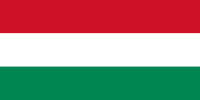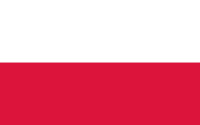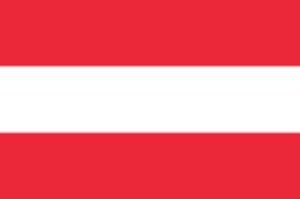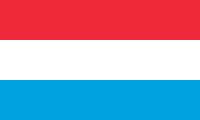
The Hungary Business Travel Guide contains an array of useful resources and tools to help assist business travellers on their trips. The guide contains facts on Hungary, visa information, business customs, culture, tips, and more. A thorough understanding of other cultures, languages, customs and traditions can be a distinct advantage for business travellers helping to foster better understanding, avoid cultural misunderstandings and helping to create a successful business trip.
Hungary has a middle sized, upper middle income economy with a number of business opportunities. It is a member of the European Union, OECD and World Trade Organisation (WTO). Major trading partners include EU neighbours France, UK, Germany, Italy, Austria, Romania, Slovakia and Russia and China. Hungary is located in central Europe and shares borders with Slovakia in the north, Croatia and Serbia in the south, Slovenia in the south west, Austria in the west and Ukraine and Romania to the east,
The country has a variety of landscapes including lakes, grasslands, mountains and rivers including the Tisza and Danube. Famous attractions include the Hungarian National Museum, The University Church, Margaret Island, Andrássy út, City Woodland Park (Városliget), Museum of Fine Arts in the capital Budapest and Lake Balaton, Tokaj wine region and Lake Hévíz.
Hungary Guide
Quick Facts on Hungary
Hungary Travel Advice
Visa Requirements
Business Customs and Etiquette
Travel Advice and Tips
Public Holidays
Hungary Map
Hungary Weather & Climate
Quick Facts on Hungary
Country: Hungary
Capital: Budapest
Currency: Forint (1 forint = 100 fillér)
Population: 10 Million (UN, 2012)
Area total: 93,000 sq km
Languages: Hungarian
Time Zone: GMT +1
Daylight Saving Details: Starts in late March until late October
Electricity: 230V 50Hz
Dialling Code: 36
GDP: USD$ 130 billion (World Bank, 2013)
Religion: Predominately Christian (Catholic, Reformed, Protestant)
Political System: Republic
Internet Domain: .hu
Hungary Travel Advice
The Foreign and Commonwealth Office offers travellers useful advice when travelling to Hungary. You can get more information on entry requirements for Hungary, advice on local laws and customs, tips on safety and security and the address and contact details of the British Embassy in Hungary. The information is regularly updated making it a good reference point for both business and leisure travellers to check before starting their trips. For more information please see: Hungary Travel Advice
Visa Requirements
No visa requirement for national of EU member states. No visa need for US and Canadian nationals for visits less than six months. Visa requirements are subject to change with changes in requirements and rules for further information please see: Hungary Embassy UK
Business Customs and Etiquette
Business attire is conservative and formal, the usual greeting is with a handshake. Business meetings need to be booked in advance. Good manners and etiquette are expected from everyone, eye contact is important in building trust, business cards are commonly exchanged. Punctuality for meetings is deemed very important, the decision making process can be slow and expect some dining and entertainment along the way. Detail in agreements will be scrutinised and need to be understood.
Most Hungarian business people involved in international business may speak English and interpreters are available if needed. The most productive months for conducting business are from September to May, it is usual for business meetings to be held at either lunch or dinner at a restaurant.
Travel Advice and Tips
Whilst the vast majority of trips to Hungary each year by business travellers and tourists pass without incident or concern there are points to note. Beware of pick pockets and bag snatchers especially in crowded areas. Keep valuable out of public view in a safe place. There are scams of extra surcharges in bars and restaurants that charge exorbitant amounts on to the bill. It is wise to check with your hotel/tour guide/operator to avoid known establishments and if you suspect any hidden charges then do not go in to help avoid trouble.
Travel Checklist: See our Travel & Packing Checklist containing useful tips and reminders to ensure you have everything you will need on your trip.
Travel Vaccinations: It is recommended you check with your GP for the latest travel vaccinations advice up to eight weeks before you travel. For more information and advice on travel vaccinations please see the NHS Fit for Travel website.
Tipping: If service charge is not included usually around 10%
Hours of Business:
For Businesses:
8.00 to 16.30 Monday to Friday
For Shops:
07.00 to 19.00 (some shops close at lunchtime on Saturdays)
For Banks:
08.00 to 15.00 Monday to Thursday
08.00 to 13.00 Fridays
Note: Banks are usually closed on Saturdays but ATMs are available to use. Shops in malls and larger complexes are open on Saturday and Sundays.
Public Holidays
Public Holidays (2015):
January 1: New Year's Day
March 15: Anniversary of the 1848 Revolution
April 6: Easter Monday
May 1: Labour Day
May 25: Whit Monday
August 20: St. Stephen's Day
October 23: Day of Proclamation of the Republic
November 1: All Saint's Day
December 24: Christmas Eve
December 25: Christmas Day
December 26: 2nd Day of Christmas / Boxing Day
Hungary Map
Map of Budapest, Hungary
View Larger Map
Hungary Weather & Climate
Hungary's location in central Europe gives it a continental climate, with four seasons that includes warm summers including some hot temperatures in July and August and cold winters with temperatures below freezing. January is the coldest month with July and August being the hottest. Both spring and autumn are mild, the north of the country is a bit colder on average than the south. The climate overall means Hungary is a year round destination and has established itself as a very popular cultural and city breaks destination.
Lightweight cotton and linen clothing can be warn in the summer months, rain coats and umbrellas are advisable year round. Additional layers and warmer clothing is required in the winter and a jacket or jumper is useful in the evenings even in the summer. Water proof and heavy weight clothing is required when trekking in the mountains.
Disclaimer: The information given in on this website is given in good faith and to the best of our knowledge. If there are any discrepancies in no way do we intend to mislead. Important travel details and arrangements should be confirmed and verified with the relevant authorities.




